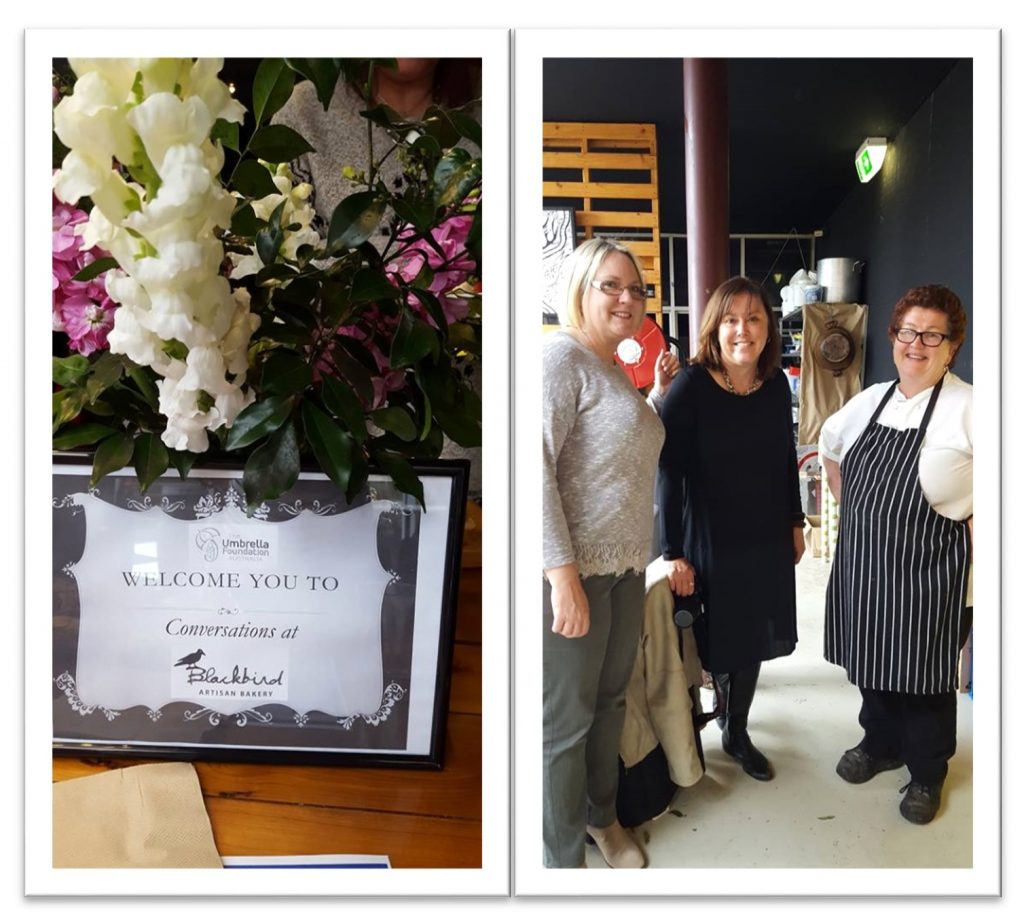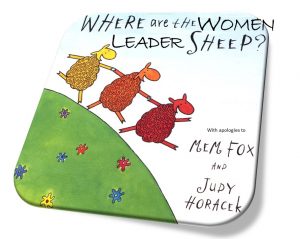So tell us a bit about your background, where have you come from?
My childhood was pretty STEM-free and my school life was tailored to becoming a music teacher, like my mum. I did, however, love being outside and getting dirty but not playing with rocks – horses.
I took Geology in year 11 and 12 at school almost by accident, and kind of blitzed it. My Geology teacher was a woman of amazing strength and intelligence, although at the time we thought she was a bit of a T-rex. Her down-to-earth (pardon the pun) style of information delivery and her logical approach to the observation of natural processes and systems simply made the subject seem easy.
I changed my mind when choosing university courses in Yr 12, and chose geology over music despite my mother’s protestations that I would hate competing in a world full of men and living in the middle of nowhere. Her comments were a bit like a red rag to a bull really, which, thinking about it now, I’m sure she realised at the time. You know, that whole parental reverse-psychology thing.
She was right though, it was scary at first, especially as a 19 yr old in the single persons’ camp in Weipa. Longer term though, it’s been great and I love working with blokes. They rarely judge you on anything.
Where are you working now and what does your work involve?
I presently run my own consultancy providing geological advice to coal mines and exploration companies, mainly in the Hunter.
Most of my work these days is in modelling coal deposits. I use specialized software to help me interpret the structural nature of the sedimentary rocks observed in drill holes to produce 3D models of the coal seams. I then estimate the quantity of coal in the ground for my client and can predict the location of the seams for mining.
So effectively I have made a living helping global mining companies dig up the world’s mineral resources and fossil fuels….
So how is it that you are taking a boat trip with 77 other female scientists who are probably at the greener end of the environmental spectrum than yourself?
Well, interestingly by accident again, kind-of. I was tagged by a friend on FB in a post about a trip to Antarctica especially for women in science. I put in an expression of interest not really knowing much about the project itself but knowing I was very keen to go and play with penguins – I just love penguins.
As I became aware that a lot of the scientists on board were in climate change research I did get a little nervous that if I were accepted for the trip I might be “voted off the boat” Survivor-style, given I am pro-mining and work for the dirty, stinky coal companies.
Instead of chickening out I put together my application and sales pitch for selection on the basis that (hopefully) I will provide a degree of balance to debate while aboard, given I can look at situations from a quite different experience-base than many of the other women who would be taking part.
Let’s have a look at your sales pitch video, then…
Apparently the selectors were in stitches when they got to my video, having viewed probably 100-odd that day. And yes, I did get chosen in the initial round of 42 women.
What are the main objectives of the Project?
- To elevate each participant’s leadership capabilities;
- to refine participant’s skills to design and execute strategy;
- to educate on the science of what is happening to our planet;
- and to contribute to and elevate the broader societal conversation about the role of women in leading the world toward a more sustainable future.
There’s a lot of global support going in to the Project in terms of the training we’ll be getting on-board as well as some we’ve already started on. As well as the organisers there are international supporters promoting and engaging with the Project who will also contribute to the film.
Why do you think the organisers have chosen Antarctica specifically, and why only women?
I believe their reasoning in choosing Antarctica is that the study of Antarctica and the Southern Ocean and their roles in the climate system provide critical insight into global change and the influence of human activities on environmental change. Regions of Antarctica are apparently responding faster to climate change than many other parts of the world.
In response to choosing only women… we all know that globally women are under-represented in leadership positions. Change to counter this situation is slow, despite the increased dialogue and system, process and attitude changes.
Women are outnumbering men graduating in many STEM fields these days and make up a significant percentage of the workforce. But we are in the profound minority globally when it comes to executive decision-making roles.
To lighten things up a bit, I’ve put together a little presentation about this dilemma…
Where are the Women Leader Sheep? With apologies to Mem Fox and Judy Horacek.
So yes, that’s me off on a boat for 20 days and I really hate boats. Nothing like stepping out of your comfort zone for boosting your confidence! And I don’t usually back away from a good challenge.
Why are you really participating in this Project and what do you hope to gain from it?
Ever since I heard Professor Iain Stewart speak at the Australian Earth Sciences Convention in Newcastle a few years ago I have wanted to get into Science Communication. You may know him as the presenter of a number of tele-documentaries like “How Earth Made Us” and “Rise of the Continents.” Unforgettable Scottish accent.
I plucked up the courage to speak to him later during the conference about pathways for learning how to effectively deliver information to ordinary (by that I mean non-scientific) people. Geological issues are increasingly intruding into our everyday life, our communities and even into some people’s own “backyards.” Issues like drilling holes for coal seam gas exploration or perhaps storage of CO2, maybe even radioactive waste.
I believe conversation is needed to inform on the science facts rather than the science fiction. It’s clear that these types of issues can be highly emotive and it becomes easy to listen to and follow political or environmental activists’ spin.
I’d like to improve my communication skills while on board this boat so that I can better connect with the public to encourage positive and meaningful dialogue for sustainable resource use or even just acceptance and understanding of some of these geological issues within our society. I don’t see the point in continually going over the same old ground of how, why or who is responsible for various environmental impacts. We need to accept that we can all do more with less, curb this extreme consumerism we are becoming guilty of, and realise we all play a part in looking after our home.
Can you tell us a bit about some of the other participants?
Given I’ve not met any of them in the flesh yet, that’s a bit difficult. I’ve heard their voices on conference calls and had email conversations with some of the other participants but because there’s 78 I tend to get a bit confused over who’s into what! I think over half the boat will be Australians but there are quite a few from elsewhere around the globe…
So how do you think you’ll handle being in close quarters with 77 other potentially career driven women for 20 days?
Probably not well.
Like I said before, I love working with blokes because they don’t tend to judge you as harshly. Even though I’m pretty opinionated I do know when to keep my mouth shut, although my husband would probably beg to differ. Seriously though, we’ve all had some pretty intensive emotional intelligence testing already, which has given us good insight as to how we really do perform in that area and also which skills we need to work on.
I think they really tested us all so the organisers don’t put chicks in the same cabin who are likely to kill each other – we don’t get to pick who we share with and it will change each week I’m told.
I do honestly believe, though, that women are extremely collaborative in their problem solving abilities. Women also often possess amazing coping mechanisms and this drives their adaptability. Together with our nurturing instincts we are well suited to planning and advising for a sustainable future and so we should be given every opportunity for our voices to be heard at the leadership table.
So where in Antarctica do you actually get to go?
We sail from Ushuaia, in Tiera del Fuego, Argentina, and take 2 to 4 days to cross the Drake Passage and reach the South Shetland Islands, just north of the Antarctic Peninsula. How long it takes to cross the Drake is apparently dependent upon weather. Urrgghh.
We head through the Antarctic Sound and down the eastern side of the peninsula into the Weddell Sea which can be choked with ice – but apparently also with penguins, goody goody! We then head back through the Sound and down the western side of the peninsula, hopefully making it as far south as Marguerite Bay.
We will be calling in at a few Stations but I’m not sure exactly which ones yet and we don’t actually stay on the continent itself at all. Just the boat. There was talk of spending a night camping on the ice which I was definitely up for, but the logistics of it were too difficult as the boat we’re on is not set up for us to do that. We were going to have to provide our own tents and sleeping gear.
I’ll definitely be keeping a good diary of where and what goes on, as well as taking thousands of photos (it’s in my genes to do that, isn’t it Dad?) so I’ve got lots of material for when I come home and do another Conversations at Blackbird next year!
OK, that’s probably about it for now. We’ll open the Conversation up for audience questions…

